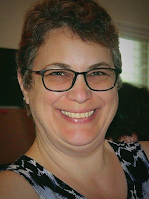Course Length: Full academic year (30 weeks)
This Year's Schedule: Click here to view
Overview of Dreaming Spires Science Courses
All our science courses use a unique approach to scientific study -- instead of boring, dry textbooks, students are drawn into the subject through reading modern, award-winning books like The Hidden Life of Trees for Biology, or Elements of Murder for the forensics unit in Chemistry.
We focus on not just scientific facts, concepts, and principles, but often looking at the ethics of a topic and how the issue applies to our modern world. Think, for example, how our unit on viruses (where we read The Hot Zone about ebola) is entering a student's discourse with the rise of Covid-19.
The ultimate aim of the Dreaming Spires Science courses is to obtain a working and applicable knowledge of the principles of science, to engage students in an active and enjoyable way, and to encourage them to see how science is something real and concrete and seen all around them.
Aims of the Chemistry Course
Our goal at Dreaming Spires, as always, is to light a fire of understanding. In this course, it will be fanning the flames of understanding how science, and in particular Chemistry, surrounds us in our daily lives. We'll use living books as the fuel for learning about chemistry concepts, since they are the scholar's choice for a high-quality quality learning tool (as opposed to textbooks or workbooks with their more prescriptive, and thus, restrictive, methodology). The living books selection includes titles such as The Elements of Murder and Napoleon's Buttons.
Students will leave the course with real-world understanding of chemistry concepts and how they pertain to them in the world, all while supporting them for any future studies they may want to pursue.
Concepts to be explored include:
- Measurements and units
- Atoms, molecules and matter and their structure
- Energy and heat
- Acids and bases
- Chemical equations
How It Works
Students will attend the weekly one-hour, live, online webinar where their comments and contributions are generally made via chatbox, typing while the tutor uses the mic to present information that expands, deepens, or broadens what was read during the week for homework. Occasionally, we will make use of webcams and microphones, but this is only ever optional.
For the rest of the week, students will work in their own time, reading, responding, and applying what they've learned in class as well as submitting homework. While the work is never *hard*, it is challenging to engage one's brain in all the ways we stretch our students as opposed to most textbook approaches that lack the techniques for retention.
Add-On Lab Option
New for this year, we're adding an optional extension for those who want more practical exploration via lab work. This extra half-hour webinar each week will make use live demonstration and/or pre-recorded experiments, and provide PDF instructions for anyone who wants to re-create the study at home as well. An online lab extension like this is perfect for anyone who can't access lab equipment or supplies.
How It Supports Your Child's Education
For US students, the main course can be taken as one high school credit for a transcript, or with the add-on lab, an honors-level credit.
For UK students, the course covers all the topics for the CAIE science exam in chemistry and includes many questions that have been found on past papers, so is an excellent way to prepare students for the exam alongside one of the many revision guides available to purchase online. The add-on lab is specifically geared toward preparing for this exam, and is especially recommended for those aiming to take it.
Who Teaches Chemistry?
 Kimberly Jones holds a BSN from the University of Texas at Austin and an MEd in Secondary Education from Texas State University. She is currently working on a second master’s degree in Educational Technology with plans to complete her doctorate once her youngest graduates. Kimberly served in the military as a medic and behavioral health specialist before taking posts in pediatric and post-partum nursing. Since 2001, she has been teaching science in homeschool co-ops while homeschooling her own children -- one of whom attended university, another of whom served in the military, and two more of whom are still at home.
Kimberly Jones holds a BSN from the University of Texas at Austin and an MEd in Secondary Education from Texas State University. She is currently working on a second master’s degree in Educational Technology with plans to complete her doctorate once her youngest graduates. Kimberly served in the military as a medic and behavioral health specialist before taking posts in pediatric and post-partum nursing. Since 2001, she has been teaching science in homeschool co-ops while homeschooling her own children -- one of whom attended university, another of whom served in the military, and two more of whom are still at home.See all courses taught by Kim


